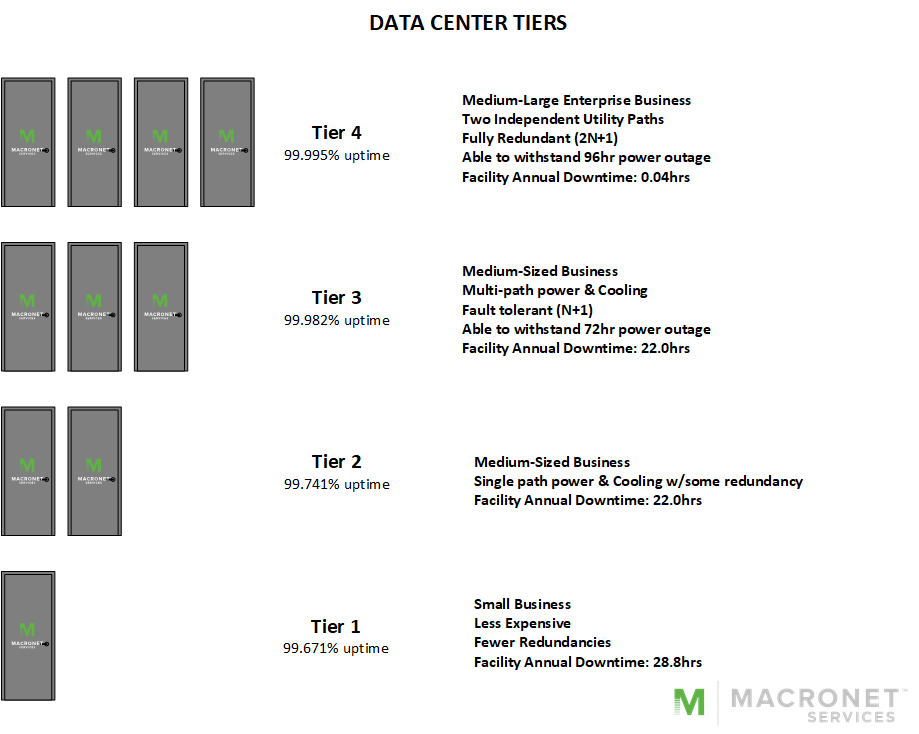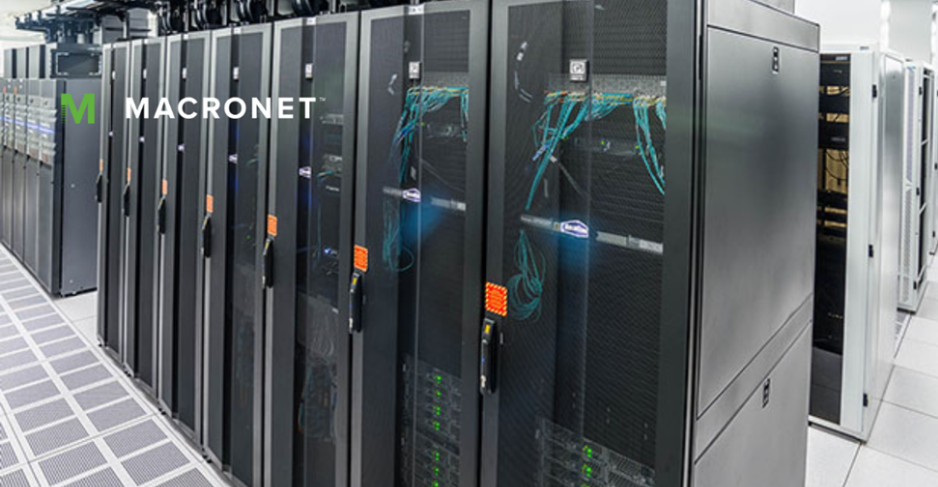What is Colocation and Why You Should Care
Executives responsible for managing businesses of all sizes are keenly aware that they need to pay attention to high-level IT decision making so that they are constantly aligning business objectives with IT’s strategic direction.
Our team is often asked “what is colocation” by finance executives seeking to understand more about moving IT infrastructure assets to a colocation services provider; a move that changes the IT cost model. There are presently over 4800 colocation facilities globally and 1850 in the United States. The global colocation market is experiencing a 10% compound annual growth rate (CAGR) and is expected to top $60 billion by 2026.
Colocation of IT infrastructure involves the outsourcing of data center “space” to a third party that specializes in building, maintaining, and securing hardened data center facilities. Modern data centers are typically built to meet strict compliance standards. Infrastructure to support colocation includes diversity of all services including power, network services, cooling, and other critical systems. A video overview of Google’s data centers can be found HERE.
 Basic colocation is sometimes referred to as “Ping, Power, and Pipe”. This terminology references basic monitoring of customer hardware (ping), electricity to run the hardware (power), and internet connectivity (pipe). Moving IT assets to a colocation provider shifts these concerns to a third party who is focused on building data centers to suit numerous tenants.
Basic colocation is sometimes referred to as “Ping, Power, and Pipe”. This terminology references basic monitoring of customer hardware (ping), electricity to run the hardware (power), and internet connectivity (pipe). Moving IT assets to a colocation provider shifts these concerns to a third party who is focused on building data centers to suit numerous tenants.
Below is a summary of key considerations when selecting a colocation provider:
Location – The Macronet team has colocation data center mapping tools that identify colocation providers by distance from an address. The tool will overlay key consideration factors such as US Earthquake Risk, US Electricity Cost, Public Cloud Connectivity (AWS/Azure/Google Cloud Platform)
Reliability and Efficiency – Uptime of all systems is a critical consideration. Tier 4 data centers offer 99.99% uptime and are at a cost premium. Tier 1 data centers average 99.67% uptime and are less expensive. Also, efficiency of cooling systems will determine how much hardware you can run in your colocation cabinet.

Network Connectivity – How many network service providers are built into a data center dramatically impacts your cost and your ability to design a resilient network. The Macronet team’s fiber and Cloud Service Provider (CSP) tools will accurately identify available providers at each colocation facility.
Scalability – It is important to know that the data center and its systems will scale to exceed the available floor space. In addition, your cabinets or private colocation cage should be designed to scale to empty space. Right of First Refusal (ROFR) can be negotiated to ensure that you can claim abutting space.
Security – Strict security policies and procedures should be established to prevent unauthorized access. Control measures must be taken to prevent alteration of information.
Compliance Certifications – Our tools will identify which colocation providers meet certification and compliance standards required for your industry including FISMA, HIPAA, PCI, SSAE 18, NIST 800-53, ISAE 3402, ISO 27001, ISO 50001, Privacy Shield, SOC 1, SOC 2, SOC 3
The team at Macronet Services has extensive experience with the design and sourcing of colocation services for businesses of all sizes. In addition to identifying suitable colocation providers, we will help your team with a long-term strategy for network connectivity. Please contact us anytime to discuss your project and a candid conversation about how we can help.

Related Posts
3 Comments
Comments are closed.
Recent Posts
- What is a Wayleave and How Can it Impact Your Circuit Installation Timelines?
- What are the Keys to a SASE Network Design?
- What is a Cloud Center of Excellence (CCOE) in a FinOps practice?
- Who are the best ISPs in London for business?
- How is ServiceNow used for Telecom Expense Management and What is ServiceNow ITSM?
Archives
- April 2024
- March 2024
- February 2024
- January 2024
- December 2023
- November 2023
- October 2023
- September 2023
- August 2023
- July 2023
- June 2023
- May 2023
- April 2023
- March 2023
- February 2023
- January 2023
- December 2022
- November 2022
- October 2022
- September 2022
- August 2022
- July 2022
- June 2022
- May 2022
- April 2022
- March 2022
- February 2022
- January 2022
- December 2021
- November 2021
- October 2021
- September 2021
- August 2021
- July 2021
- June 2021
- May 2021
- April 2021
- March 2021
- December 2020
- September 2020
- August 2020
- July 2020
- June 2020
Categories
- Uncategorized (1)
- Security Services (61)
- Cloud SaaS (45)
- Wide Area Network (277)
- Unified Communications (180)
- Client story (1)
- Inspiration (3)
- Tips & tricks (20)
- All (4)
- Clients (10)
- Design (3)
- News (239)
- Music (1)





[…] remote users is unavailable natively. If you happen to be in one of the well-known 3rd party colocation facilities, there could be a SD Router available to use. Options around this is to build a […]
[…] organizations are opting keep their colocation footprint but at a reduced square footage and closer to their edge network for a few reasons. […]
[…] colocation rack […]